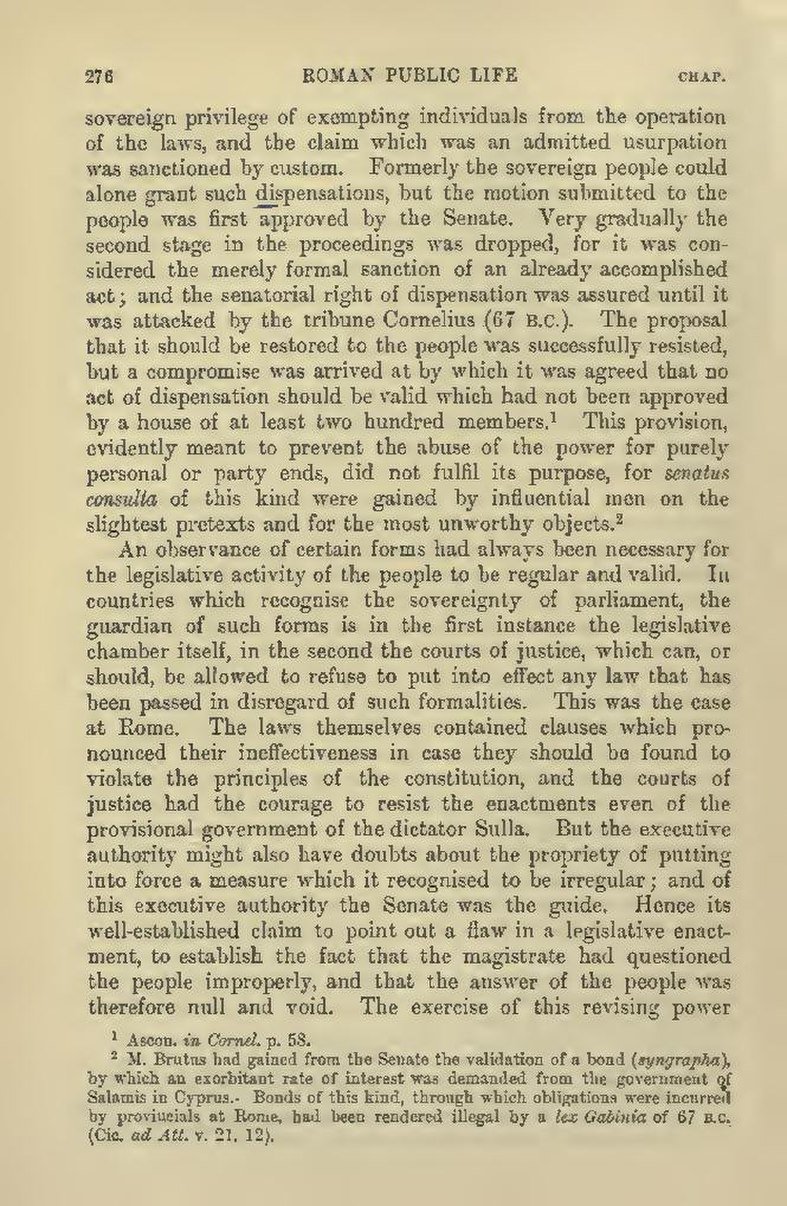sovereign privilege of exempting individuals from the operation of the laws, and the claim which was an admitted usurpation was sanctioned by custom. Formerly the sovereign people could alone grant such dispensations, but the motion submitted to the people was first approved by the Senate. Very gradually the second stage in the proceedings was dropped, for it was considered the merely formal sanction of an already accomplished act; and the senatorial right of dispensation was assured until it was attacked by the tribune Cornelius (67 B.C.). The proposal that it should be restored to the people was successfully resisted, but a compromise was arrived at by which it was agreed that no act of dispensation should be valid which had not been approved by a house of at least two hundred members.[1] This provision, evidently meant to prevent the abuse of the power for purely personal or party ends, did not fulfil its purpose, for senatus consulta of this kind were gained by influential men on the slightest pretexts and for the most unworthy objects.[2]
An observance of certain forms had always been necessary for the legislative activity of the people to be regular and valid. In countries which recognise the sovereignty of parliament, the guardian of such forms is in the first instance the legislative chamber itself, in the second the courts of justice, which can, or should, be allowed to refuse to put into effect any law that has been passed in disregard of such formalities. This was the case at Rome. The laws themselves contained clauses which pronounced their ineffectiveness in case they should be found to violate the principles of the constitution, and the courts of justice had the courage to resist the enactments even of the provisional government of the dictator Sulla. But the executive authority might also have doubts about the propriety of putting into force a measure which it recognised to be irregular; and of this executive authority the Senate was the guide. Hence its well-established claim to point out a flaw in a legislative enactment, to establish the fact that the magistrate had questioned the people improperly, and that the answer of the people was therefore null and void. The exercise of this revising power
- ↑ Ascon. in Cornel. p. 58.
- ↑ M. Brutus had gained from the Senate the validation of a bond (syngrapha), by which an exorbitant rate of interest was demanded from the government of Salamis in Cyprus. Bonds of this kind, through which obligations were incurred by provincials at Rome, had been rendered illegal by a lex Gabinia of 67 B.C. (Cic. ad Att. v. 21, 12).
